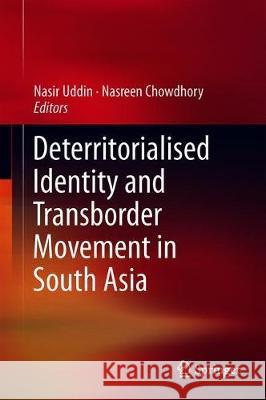Deterritorialised Identity and Transborder Movement in South Asia » książka
topmenu
Deterritorialised Identity and Transborder Movement in South Asia
ISBN-13: 9789811327773 / Angielski / Twarda / 2019 / 228 str.
Kategorie:
Kategorie BISAC:
Wydawca:
Springer
Język:
Angielski
ISBN-13:
9789811327773
Rok wydania:
2019
Wydanie:
2019
Ilość stron:
228
Waga:
0.54 kg
Wymiary:
23.62 x 24.64 x 1.52
Oprawa:
Twarda
Wolumenów:
01











